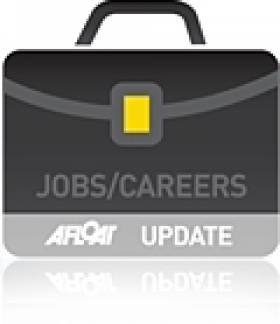Displaying items by tag: Outdoor
Fast Track Instructor Course Helps Candidates Land Dream Job
#instructorcourse – An innovative training programme on the shores of Upper Lough Erne is set to welcome participants from all over the UK and Ireland to undertake Outdoor Instructor Training and fast track them into a career in the outdoors.
Share Discovery Village are offering an intensive 15 week modular course focusing on water sports such as Dinghy Sailing, Windsurfing, Canoeing, Kayaking and Power Boating. The Fast Track Water Sports Course enables participants to gain the internationally recognised national governing body qualifications, skills and experience to qualify as outdoor instructors in time for the Spring season when most sun based destinations begin recruitment. As Share Course Co-ordinator Damien Smith suggests;
"The course is a springboard for people completing a sports or outdoor related degree to gain the qualifications needed to work in the industry, or indeed for people to gain some sought-after qualifications that will enable them to work whilst travelling the world. Our friendly and highly experienced Instructors are at the top of their game and looking forward to meeting new people and working on the new programme."
With over 30 years' experience in running instructor training programmes, SHARE is now the largest and most well renowned residential outdoor activity centre in Ireland. Based in County Fermanagh, on the shores of Upper Lough Erne, SHARE offers the ideal lakeside location to deliver, top quality water based training programme.
Starting with an open day in late October, potential candidates are welcomed to try out some of the activities, see the vast range of facilities and equipment on offer and have any pertinent questions answered, before signing up for the course which begins in November 2012. To ensure success to instructor level it's important to have at least a basic personal skills level in each of the three disciplines. SHARE's ten day foundation level course, run just prior to the main course, offers a kick start to the training in each discipline. Candidates will then undergo intensive month long tuition in each sport developing personal skills before undertaking instructor training.
This modular programme enables candidates already holding qualifications in the various sports the opportunity to pick and choose training to suit their needs, ensuring the course is cost effective and all encompassing for people on a gap year or career break, career changers, school leavers, university graduates and outdoor instructors wishing to develop their career further. However signing up for all three courses comes with an attractive 9% discount on the overall price.
SHARE are renowned for their all inclusive prices with no hidden extras, so candidates can avail of full board twin room accommodation in cosy chalets for the duration of each module, qualifications and all associated costs, savings of up to 40% on outdoor equipment, free use of Share Fitness- pool, sauna, Jacuzzi and steam room, and free use of Centre equipment including sailing boats, kayaks, canoes, windsurfing kit and sports hall.
Candidates must be 17 years old and over with a good level of physical fitness. For more information contact SHARE on +44 (0) 2867 722 122 or email [email protected]
Click here to access the application form and additional information directly.




























































